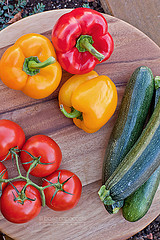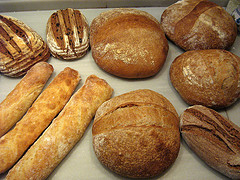 Photo Credit: Lili B. Capaccetti via Compfight cc Photo Credit: Lili B. Capaccetti via Compfight cc If I had to pick what causes some of the most confusion when it comes to discussing nutrition, I think I would have to go with carbohydrates. When people hear the word, most immediately think of bread, and I would even say grains for that matter. Many don't even realize that all vegetables are considered carbohydrates, as well as, all fruits. So let's answer some common questions. What is a carbohydrate?
Are Complex carbs really better?
 Photo Credit: Ibán via Compfight cc Photo Credit: Ibán via Compfight cc I thought whole grains were better? How can that be if it's absorbed the same?
And what about gluten?
Gluten Sensitivity? Celia? What's the Deal?
It seems everyone is gluten sensitive these days, why?
But I've heart Gluten-Free is often worse than the 'regular' stuff?
So what to do?
Disclaimer: Naturopathic Doctors strive to provide individualized health care. The information contained in these topics is not intended nor implied to be a substitute for professional medical advice, it is provided for educational purposes only. This information shouldn’t take the place of seeing an ND for individualized health recommendations.
1 Comment
8/14/2023 01:47:46 pm
Right now I'm writing a rebuttal to false claims made on Health Canada websites about how wonderful whole grains are and how to include them in our diets. The reality is that no one but farmers has access to whole grains in Canada. As you've mentioned, the partial grains used to make these claims drives blood sugar up. Making these false claims here in Canada and around the world is why Diabetes and Hypoglycemia represent has yet to be announced as the Blood Sugar Pandemic. The lack of traffic you get here is fairly indicative of the great job governments do to keep the whole grain myth from being exposed even when it's in plain sight.
Reply
Leave a Reply. |
AuthorWrite something about yourself. No need to be fancy, just an overview. Archives
August 2016
Categories
All
|

 RSS Feed
RSS Feed
